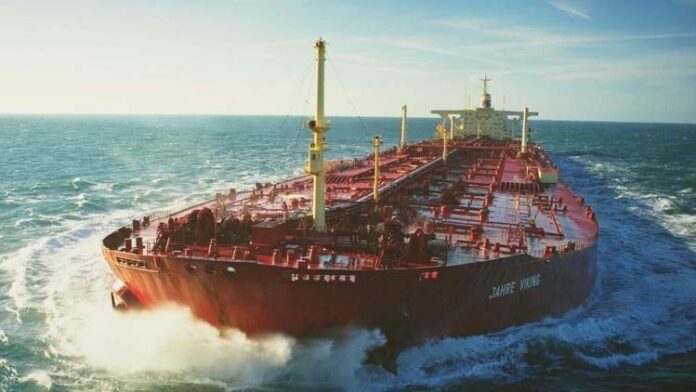With just over a year until the new marine fuel regulations are put in place, ship owners are heavily investing in scrubbers, while others are still facing dilemmas, regarding their future plans to comply with these regulations. In its latest weekly report, shipbroker Intermodal noted that “the bunker fuel supply and availability landscape is close to its transformation with the enforcement of the IMO’s global 0.5% fuel Sulphur content cap regulation from 1st of January, 2020.
Shipowners will have to choose between available options for them to comply with the regulation, while refiners will have to make suitable changes to refinery configuration and production in response to market demand. Thus far all parties will have to decide on the most efficient and appropriate solution that will suit their operations and allow them to remain commercially sustainable in the long run.

Katerina Restis, which is an expert in tanker chartering department with Intermodal said that “the swipe from the present 3.5% to 0.5% Sulphur content marine fuel will practically be an overnight shift as refineries would need to continue production and supply of up to 3.5% marine fuel until the day regulation requirement kicks in. Global refining will face enormous logistics, storage and delivery issues, while ships will have to clean out fuel systems to avoid Sulphur contamination. Thus, there is a risk such quick swing to lead to a period of product shortages and inflated marine oil prices. According to data reported on average up to 2017, the shipping industry was consuming approximately 3.2m barrels p/d of HFO and 800k p/d of MGO. Accordingly, from 2020 onwards it is estimated that proportion will alter to 700k p/d of HFO to 3.4m barrels p/d of MGO. Obviously, the use of compliant Sulphur oil products will be the expensive solution for ship-owners that will either absorb the cost or possibly operators will try to pass the cost to Charterers via increased freight rates”.
Restis added that “simple refineries that produce a substantial share of their crude oil into HFO may face margin pressures, while complex refineries with greater infrastructures may potentially boost margins with larger production of low Sulphur products. IEA has stated that if refiners ran at similar utilization rates as of today, it would be unlikely to produce the essential volumes of gas oil. Particularly, if quantity rises to meet the required gas oil volumes, margins would be inevitably affected by shrinking profits”.
According to Intermodal’s analyst, “overall, oil majors and refineries will try to back up the bunker fuel demand ascending from the new regulation through several ways. Refiners may elevate ULSFO production by extracting low Sulphur fuel streams that are currently blended into LSFO or HSFO will be made available to the market as ULS FO. ExxonMobil, for example has introduced a product, Heavy Distillate Marine ECA 50 that can be consumed onboard like HFO and has only 0.1% Sulphur content. Furthermore, refiners have an issue of handling their surplus residue as this option comes with higher risk on returns of investment. This is due to the fact that oil demand is founded on shippers’ uptake of alternative options such as scrubber installation and LNG bunkering. Refiners can raise LNG bunker supplies in major bunkering hubs. In Singapore, Shell and ExxonMobil are working with Maritime and Port Authority of Singapore to supply LNG as fuel”, Restis concluded.
“To sum up, in the scenario that refineries restrict the availability of HFO on expected higher margins from selling MGO, then vessels fitted with scrubbers might face challenges in relation to adequate supply of HFO. On the other hand, refineries worry that any surge in the use of MGO would head to excess quantity of HFO. For sure refineries are not rushing to big investments to change production set ups while ship-owners are still considering their options. It’s a dilemma for all parties and a puzzle to be solved”, Intermodal’s analyst concluded.
Source:hellenicshippingnews



